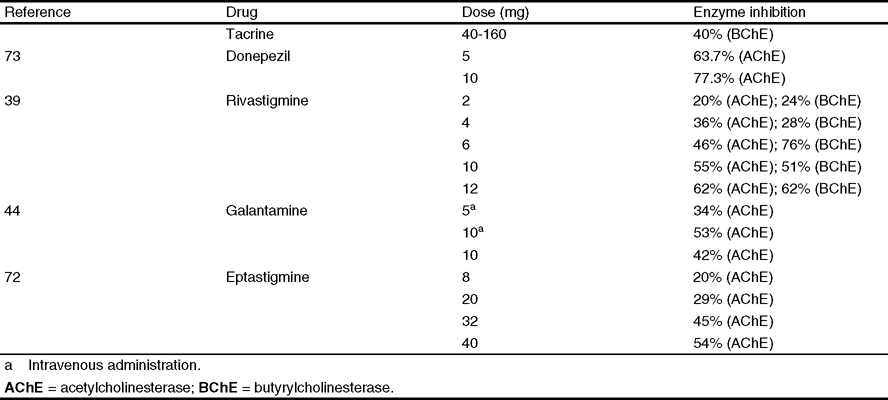Cholinesterase inhibitors have been shown to have a modest effect on dementia symptoms such as cognition. Cholinesterase inhibitors aim to increase communication between the nerve cells to try to improve the symptoms of alzheimers.

Clinical Pharmacokinetics And Pharmacodynamics Of Cholinesterase
Evidence Based Clinical Practice Guideline For Deprescribing
Deprescribing Guidelines Cognitive Decline Partnership Centre
In germany three different cholinesterase inhibitors are currently available.

Benefits of cholinesterase inhibitors. Doctors prescribe cholinesterase inhibitors to individuals with dementia caused by alzheimers disease and dementia. Cholinesterase inhibitors are the most common medications used for the symptomatic treatment of alzheimer disease. Donepezil galantamine and rivastigmine.
Cholinesterase inhibitors offer some relief from the symptoms of alzheimers disease for some people for a limited period of time. These drugs have been approved for use in mild to moderate alzheimers disease. Acetylcholine is released by certain brain cells to carry messages to other cells.
These drugs are available on the pharmaceutical benefits scheme pbs subject to certain conditions being met. Although some randomized control trials suggest that cholinesterase inhibitors may improve cognitive testing results it is unclear whether these changes are clinically meaningful. Cholinesterase inhibitors and memantine are the only currently available symptomatic medications for cognition and global functioning in patients with dementia.
What are side effects of cholinesterase inhibitors for the treatment of dementia. Some cholinesterase inhibitors are used as antidotes. Answer this drug may be prescribed for alzheimers disease that isnt too severe yet as well as other types.
After a message reaches the receiving cell various other chemicals. Benefits linked with the use of cholinesterase inhibitors for alzheimer disease a large number of randomized controlled trials have been conducted to evaluate the effectiveness of cholinesterase inhibitors on both the symptoms and course of alzheimer disease. Dont prescribe cholinesterase inhibitors for dementia without periodic assessment for perceived cognitive benefits and adverse gastrointestinal effects.
Doctors also prescribe them to individuals to treat lewy body dementia parkinsons disease glaucoma myasthenia gravis and schizophrenia. Cholinesterase inhibitors tend to cause side effects such as vasodilation constriction of the pupils in the eyes increased secretion of sweat saliva and tears slow heart rate. Cholinesterase inhibitors are designed to increase levels of acetylcholine a chemical messenger involved in memory judgment and other thought processes.
Data from published clinical trials have shown benefits for cognitive behavioral and functional outcomes. Cholinesterase inhibitors target the acetylcholine deficit arising from loss of neurons in the nucleus basalis of meynert and its projections in patients with dementia.

Lundbeck On Twitter The Benefits Of Cholinesterase Inhibition For

Medication Therapies In The Treatment Of Alzheimer S Disease Ppt
Efficacy And Safety Of Cholinesterase Inhibitors In Alzheimer S

EmoticonEmoticon